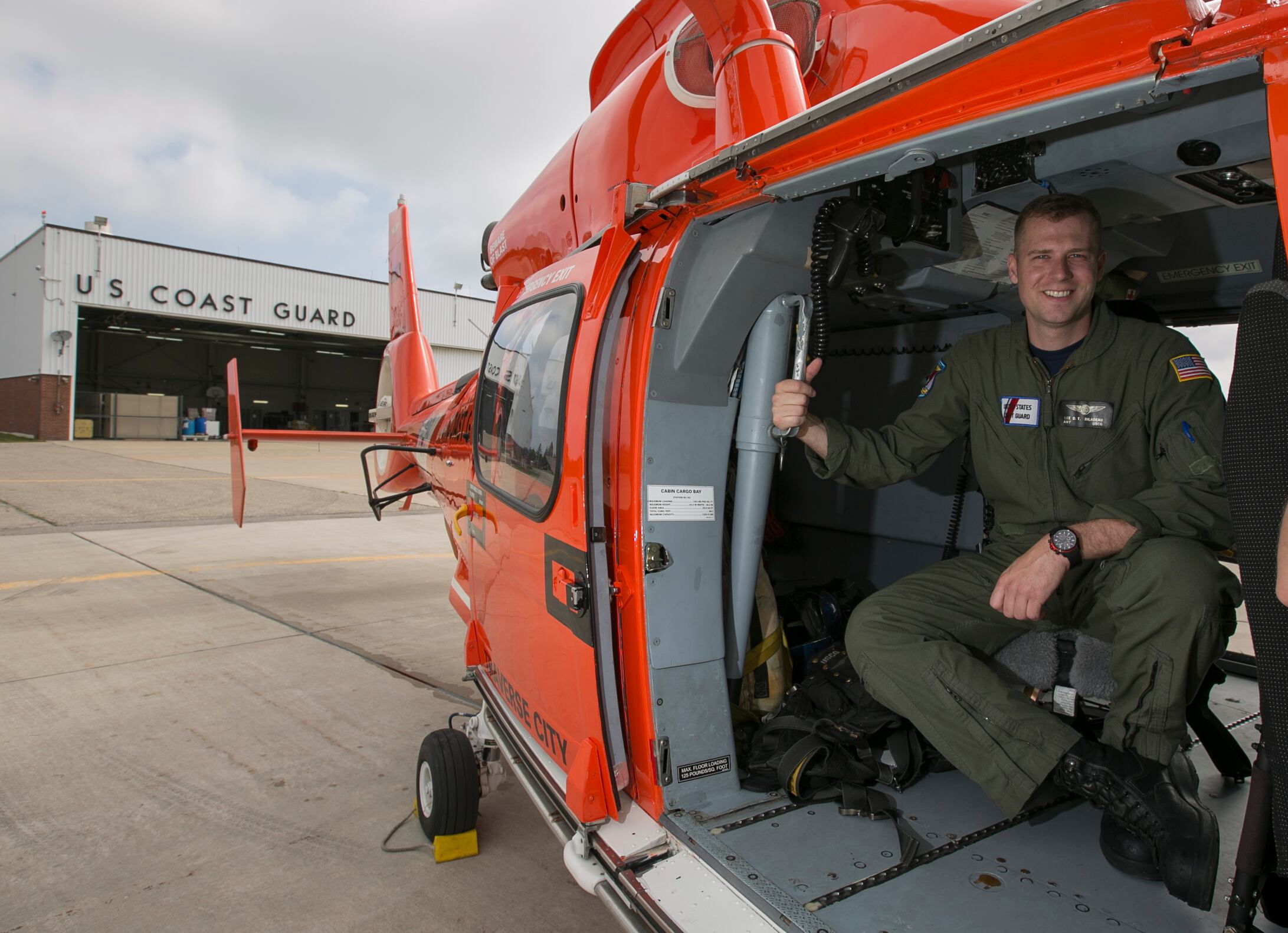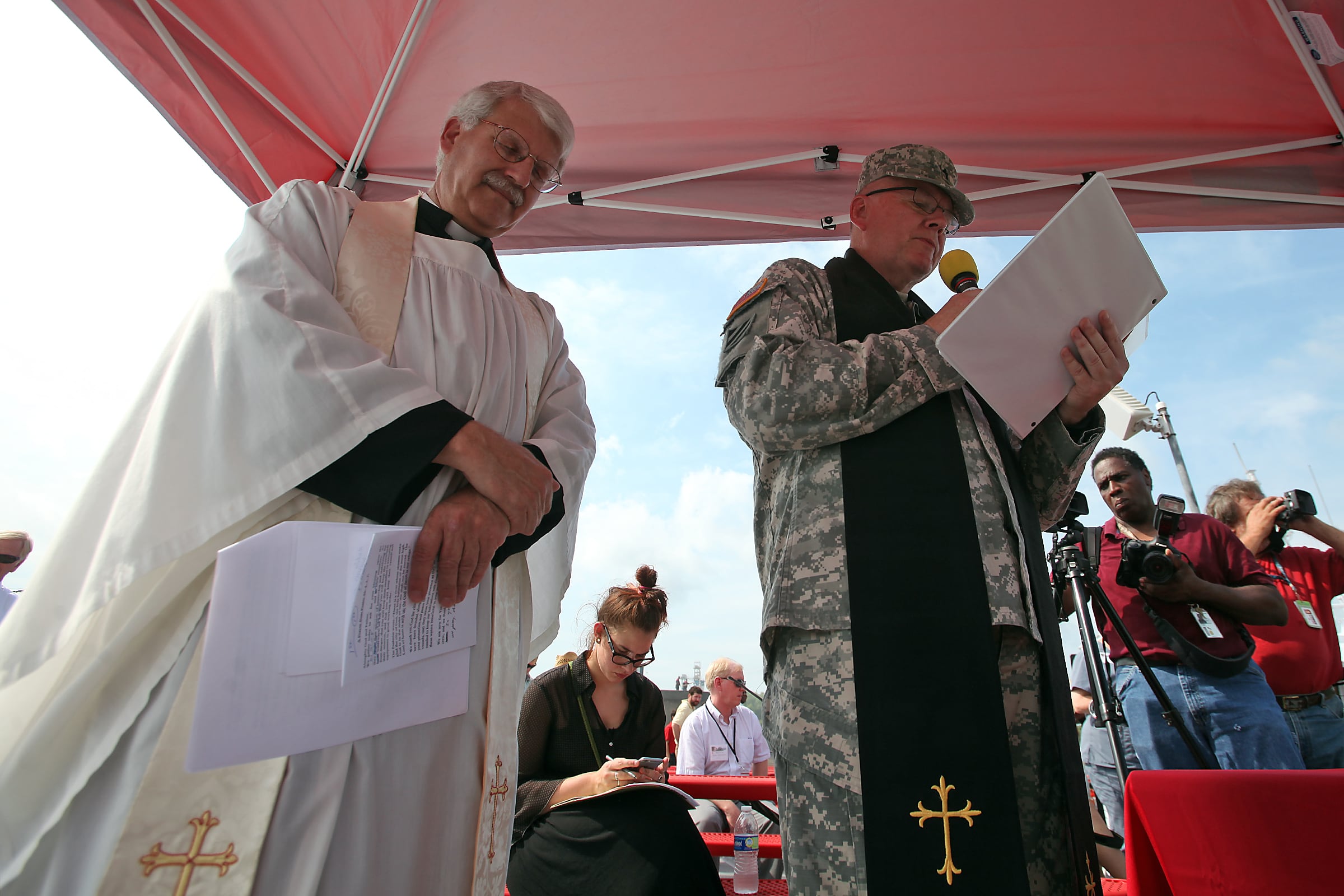COAST GUARD AIR STATION TRAVERSE CITY, Mich. — From the helo hangar to the rescue swimmer shop to the officers country upstairs, everyone here at Coast Guard Air Station Traverse City, Michigan, has a compliment for Aviation Maintenance Technician 2nd Class Biladeau.
His merits as a Coastie would be enough for consideration as the 2015 Navy Times Coast Guardsman of the Year, but it was the flood of nominations from players and organizers of a small-town Washington state lacrosse club that he once coached that put him over the top.
"What was really cool was how much his team looked up to Coach Lee. No matter who he coached, the players always showed respect," wrote player Eric Prosser. "He didn't need to demand it — it was just their way of showing their love for him."
Biladeau, 29, almost didn't join the service at all. He was 21 years old and studying criminal justice at Lewis and Clark College in Portland, Oregon, when he decided the Coast Guard could offer him some hands-on experience.
The plan was to do his four years and finish school with the GI Bill, but all that changed when he got to the cutter Jarvis in Honolulu, Hawaii, after boot camp in 2007.
"It took about 30 seconds of seeing a helicopter to change my mind," he said.

Coast Guard Aviation Maintenance Technician 2nd Class Lee Biladeau is photographed at Air Station Traverse City in Traverse City, Mich.
Photo Credit: Mike Morones/Staff
He signed up for the Airman Program, an apprenticeship for Coasties looking to go get into aviation, and spent the rest of his time learning about the MH-65 Dolphin in Hawaii at Air Station Barber's Point.
Once he got through AMT "A" school in Elizabeth City, North Carolina, he landed back in the Pacific Northwest. At Air Station Port Angeles, Washington, Biladeau and his shipmates were responsible for search and rescue, law enforcement and resource protection operations throughout the entire Puget Sound area, from waters off of Seattle to the peaks of Mount Rainier.
Then a geographical bachelor — his wife, Lindsay, was teaching back home in Idaho — Biladeau was walking around the local Clallam County fair when he spotted a table for the Olympic Mountaineers, a local high school-age lacrosse club looking to add a middle school team.
Biladeau was just the man for the job. He'd grown up in pre-lacrosse Idaho, when the sport was found mostly on the East Coast and in the Midwest, but . But he learned the sport on summer trips to New Hampshire to visit his stepfather's family in New Hampshire. He , and began playing for a local Idaho team in middle school.
By eighth grade, the sport had made its way past the Rocky Mountains. He told the Mountaineers that he'd helped start a team before, and that was that.
"I asked them if they needed any help," he said. "I got a call back a day later."
Over four seasons, Biladeau coached co-ed teams of 10 kids each, many of whom went on to play in throughout high school and for onto club teams in college.
The program grew from an hour after school three days a week to a few hours every day, with Saturday games.
"It got longer and longer and longer as the kids showed a lot of interest in wanting to be there," Biladeau said. "Sometimes we'd stay hours late to play with them."
It was an uphill battle, though, he said, because the sport was so foreign to them.
"It was challenging to explain a sport that's so foreign to kids," he said. "It was almost impossible. "It boiled down to — at that age — just teaching them a sport. How to be an athlete, how to be a team," he said.
Biladeau devoted more than 1,000 hours of his free time to the team, according to fitting in practices and games with his work schedule.
Meanwhile, at the air station, he was building a reputation as one seriously high-speed third class. He earned a spot on the station's flight examining board, taking new aircrew up in the helo to oversee their training.
Last summer he said goodbye to Washington, and at the Mountaineers' annual gala, his players presented him a trophy and a book of letters expressing their appreciation.
"I was very difficult. It was a lot harder than I thought," he recalled. "There were some tears for sure."
It's clear that Biladeau made a huge impact on the kids.
"Thanks so much for volunteering so much of your own time to help people you barely know learn the most amazing sport ever invented," player Sawyer Larsen wrote. "This season was the most fun I've had doing anything in a really long time. Lacrosse is the only sport that actually interests and challenges me and is so enjoyable."
Biladeau was also known for getting in the game.
"The coolest thing about you, Coach Lee, is when you would suit up and practice with us," Charlie Prosser wrote. "That memory will stick with me forever."
Biladeau reported to Air Station Traverse City, Michigan, in July 2014, and, by all accounts, hit the ground running.
"Lee got here and he never sat down," said Chief Warrant Officer 4 Marc Alarcon, the station's maintenance officer.
"He likes to solve problems. He doesn't just come in here and say, 'Hey, we have a problem.' He says, 'Can I help solve the problem?' " he added.
The station is responsible for all of Lake Michigan and a lot of most of Lake Superior, mostly helping boaters get out of trouble.
"Lee is a terrific flight mechanic," said Lt. Cmdr. Ryan Angelo, an assistant engineering officer. "He's the kind of guy that you hope for; when you get a transfer in, you're like, 'Oh, thank gosh.' "
Within a month, Biladeau was selected for his new station's flight examining board, based on his highly unusual experience during his first tour.
"This is only his second tour, so that speaks a lot about him and his character and the quality of work he produces," said AMTCS Jason Woulfecq/km, his lead chief petty officer.
Last winter, he was down in Florida doing proficiency training when his helo got the call that a Louisiana National Guard helicopter carrying six Marine Special Operations Command operators had crashed in the Gulf of Mexico.
"When it's a helicopter crash, it's definitely close to home, and when it's a fellow service member, it's extremely close to home," he said. "It was daunting."
He's also made a name for himself as a go-to when someone needs some help studying or a shift covered.
"I've only been here for two months and he's really helped me out with my syllabus," said AMT3 Josh Trommer. "He's offered to meet outside on the weekends. We stayed until like, 11, the other night, just learning some stuff on duty."
In an April evaluation, Biladeau was recognized for spending more than 30 hours helping a junior shipmate get back on track with his syllabus.
"He's always willing to help, and never makes you feel stupid," said AMT3 Michael Surch.
Now that Biladeau and his wife are settled in Michigan and she's got a teaching job lined up for the fall, he's networking to get involved with local lacrosse teams, where the sport is much more popular than on the West Coast.
He also has his eye on finishing college and putting in a packet for aviation engineering warrant officer, he said.
"I really like what I do. I like the maintenance aspect of my job, and the flying part of it," he said. "I'm not ready to give that up, so I want to better myself in my career but keep that aspect of it."
Meghann Myers is the Pentagon bureau chief at Military Times. She covers operations, policy, personnel, leadership and other issues affecting service members.





